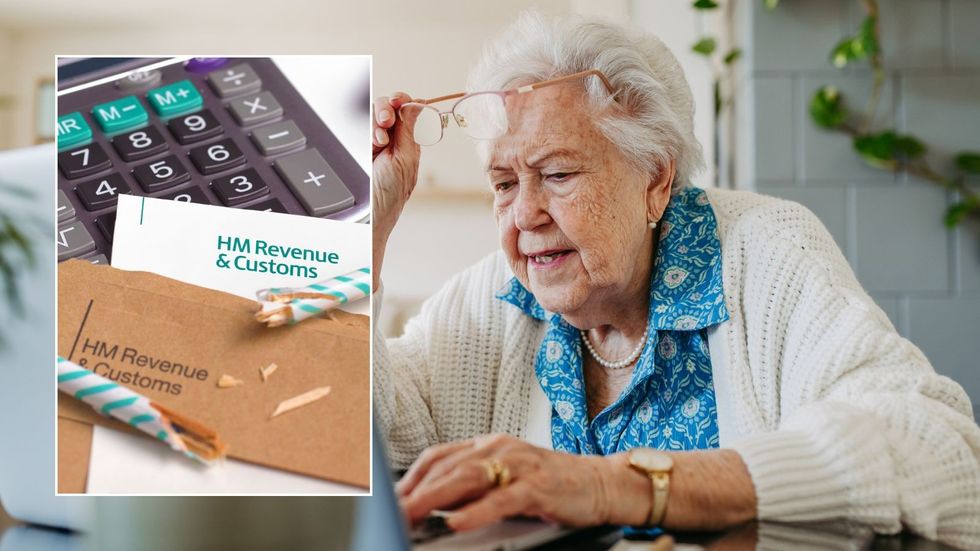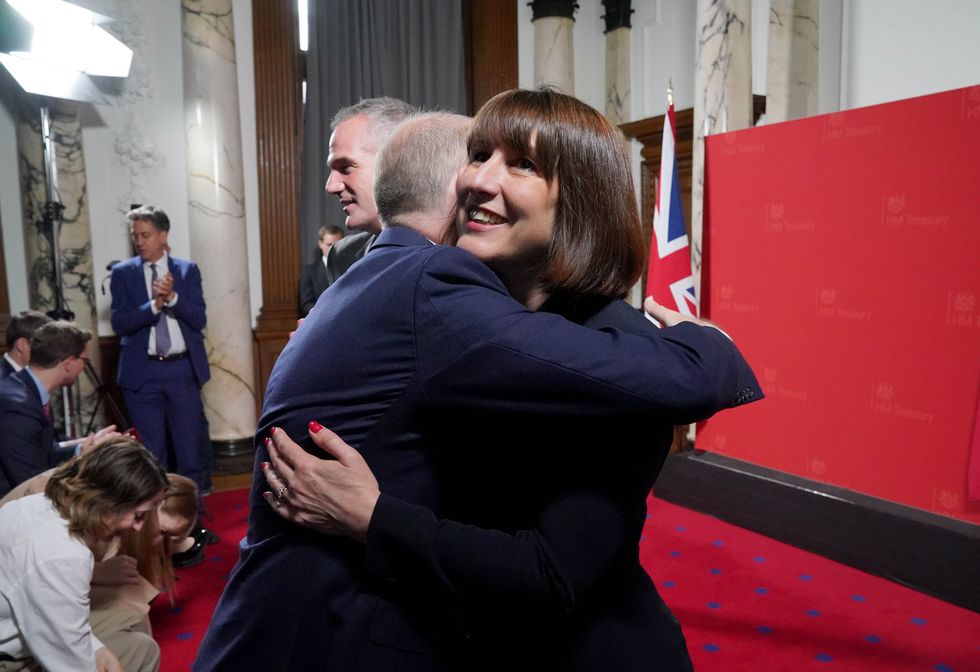The state pension triple lock helps boost the incomes of older Britons but households are being warned about their potential tax liability
Don't Miss
Most Read
Trending on GB News
State pension payment rates are guaranteed to rise thanks to the triple lock but analysts are warning that Britons' retirement savings "will become subject to tax sooner".
Under the previous Chancellor Jeremy Hunt, tax thresholds have been frozen until 2028 with speculation this could extended for a couple of years.
The decision to freeze thresholds has been referred to as a "stealth tax raid" as households find themselves pulled into higher tax brackets.
This is due to the impact of fiscal drag, when tax allowances remain at the same rate during a period when peoples' incomes and inflation are increasing.
Pensioners are particularly at risk of being impacted by this due to the new Labour Government's pledge to maintain the triple lock.
Under the triple lock, the rate paid by the state pension goes up annually either by the rate of inflation, average earnings or 2.5 per cent; whichever is highest.
Do you have a money story you’d like to share? Get in touch by emailing money@gbnews.uk.
 More state pensioners are finding themselves paying tax GETTY
More state pensioners are finding themselves paying tax GETTY Currently, the full new state pension comes to £11,502.40 per year and is expected to jump to £11,962 annually in April 2025.
This represents an increase of £460 a year and a much-needed financial boost for older Britons coming out of the cost of living crisis.
However, it also brings the retirement benefit closer to breaching the tax-free allowance on incomes on incomes which is £12,570.
Britons do not need to pay any tax on incomes which are valued below this threshold but older people face paying tax on their state pension alone in the next few years.
At its current rate, the full new state pension will exceed the personal savings allowance during this current Parliament.
Already, older Britons are finding themselves being pushed into higher brackets due to the triple lock raising their income above frozen thresholds.
Claire Trott, the divisional director of Retirement Planning and Holistic Planning at St. James’s Place, outlined why pensioners are losing more money to the tax man.
She explained: "The freezing of thresholds often sounds like it isn’t going to impact many, but as wages increase over the years it pushes more people into paying tax and more into higher tax bands.
LATEST DEVELOPMENTS:

Speculation is growing that Rachel Reeves will extend the tax allowance threshold freeze in her upcoming Budget
PA"Take the state pension for example, with annual increases and a frozen threshold, more pensioners will become subject to tax on their private pensions sooner."
Freedom of Information data from HM Revenue and Customs (HMRC), obtained by Quilter, found that 3.1 million or one in five pensioners will be dragged into paying higher or additional rate tax by the 2027/28 tax year.
Some 2.7 million people aged 60 and over are set to be pulled into the higher rate of income tax in the tax years 2022-23 to 2027-28, while nearly 500,000 will be brought into the additional rate.
The Chancellor is set to announce the Government's fiscal agenda during her Autumn Budget on October 30, 2024.









